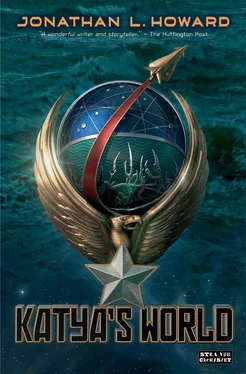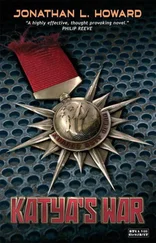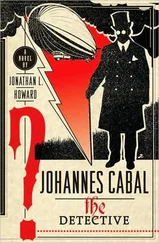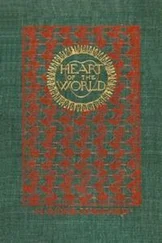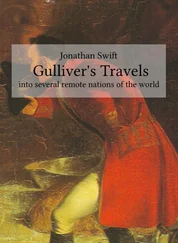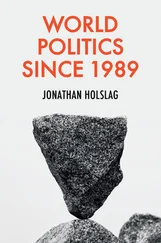Jonathan L. Howard
KATYA’S WORLD
I am Leviathan.
I come to you in blood
And lie in shadows.
My heart is a sun,
And my nerves sing with lightning.
I have come to kill you.
All of you. Each and every one.
Every man,
And every woman,
And every child.
As you huddle in families,
Or hide alone.
I shall not let any of you live.
For I am Leviathan.
I come to you in blood
And sleep in shadows.
My heart is a sun,
And my mind…
My mind…
One hundred and fourteen years ago, humanity first touched Russalka. It was a cold, machine touch, a robot probe that had arrived in orbit and observed the tempestuous surface of that storm-wracked world. The robot and its siblings had been sent out in a great wave of expansionist hope. Earth was past the point of saturated population growth. The solar system had been explored and exploited, offering almost everything but what the humans really wanted — a new world to call home.
The robot deployed its faster-than-light communications array and relayed the data it was gathering about the world, then known only as RIC-23. Yes, its atmosphere was breathable. Yes, its temperature was bearable. Yes, its gravity was acceptable. What it couldn’t offer was the simplest thing. RIC-23 was an ocean world. But for its polar ice caps, there was not even a square meter of dry land on the whole planet. Disappointed, the humans left the robot to continue its survey while they turned their attention upon other less problematical worlds in the sector.
The robot dropped a lander from orbit that fell on gossamer drogue chutes through the angry storming skies and fell into the ocean, communicating its discoveries back to Earth via the robot above. Earth looked at the analysis with growing astonishment. RIC-23 was rich in rare minerals dissolved into the oceans. Perhaps it was not the most glamorous planet they had discovered, but it was certainly one of the most useful. If a colony was founded there, it could supply the other colonies in the sector.
A colonisation project was mounted. In common with all such projects, the colonists were all taken from a single ethnicity. Previous experience had shown that, in the stressful environment of a new world where disasters may occur at any time, people look for others to blame and ethnic differences were frequently where fracture lines formed. The RIC-23 project drew its personnel purely from an area spanning Moscow to New Petrograd. The first act of the thousands selected was to name their new home. They looked to folklore and chose the name Russalka , after a race of mermaids, beautiful and mysterious. If they had looked deeper into the myth, they might have changed their minds — a Russalka was a predator that would use her charms to draw men to the water, where they would be drowned and fed upon.
The humans found Russalka a difficult world to love. The storms that scoured the surface rarely quietened, the seas rarely grew peaceful. Still, it had never been the plan to live on the surface. The ocean depths were where the minerals were, and the storms could not touch them down there. Using their advanced technologies the colonists located submarine mountains and ridges, and melted tunnels and caves into them with fusion cutters that burnt as hot as a star. They sealed and drained these new cave systems, covered the bare rock with corridor walls and floor gratings, installed lighting and heating. The settlements started to spread, named for countries and cities lost to the sea on distant Earth.
On the surface, the technicians built floating platforms for the handful of aircraft they maintained, and the shuttles needed to reach the few short range starships parked in orbit they would use to maintain trading contacts with the other nearby colonies, close neighbours only a few light years away.
The first phases of the colonisation effort were not without their difficulties and setbacks, but they passed as planned, and the Russalkin — as they now called themselves — waited for further supplies and colonists to arrive from Earth. They waited, and they waited, and they waited in vain.
There had been tensions on Earth when they left, and even rumours of war, but the Russalkin found it hard to believe that it could ever really come to that. They listened for any FTL signals from Earth, but heard nothing, only from the other colonies saying that they too had heard no news.
Years passed, decades, generations, and Earth remained silent. The ships the colonies had were incapable of travelling the vast distance to Earth to investigate, and they lacked the technologies and knowledge to build such a ship. They could only guess at what had happened, that war had indeed broken out, and that terrible weapons whose very threat had always proved sufficient before had finally been armed and sent to evaporate cities, countries, whole civilisations. Earth was dead and gone.
A century passed, and the colonies had become well established. They felt at home on their worlds, and none still considered themselves Terran. Life was hard, more so on Russalka than most, but the Russalkin developed a deserved reputation for toughness and pragmatism, and that pleased them. It was dangerous living in purely manmade environments with a hostile ocean on the other side of every airlock, it was hard sometimes going years without even seeing the sky, travelling between the settlements in submarines. Of course, there were always the crews of the surface platforms who weathered the storms with a coolness that perturbed even the hardy submariners. The platforms travelled together in a fleet, and the crews came to call themselves the Yagizban, a private joke they didn’t care to share with those who lived in the depths. The Russalkin shrugged and ignored such Yagizban eccentricities. After all, the fleet — the Yagizban Enclaves, they called it — was where most of the planet’s cutting edge technologies were developed. If anybody could rediscover the secrets of long range star travel, it would be they.
As the colonists went into their second and third generations, it became apparent that some sort of unifying organisation would be necessary to keep all the settlements working in harmony and to deal with disagreements and even the occasional crime. The Federal Maritime Authority had been founded early on to handle submarine traffic control and, as it had a presence in every settlement, its officers were given a broader remit, to act as peacekeepers and police when necessary. It was never envisioned that the FMA would ever become military in nature, but then, nobody can tell what the future will bring.
One day, without warning or fanfare, the Terrans returned.
A great, hulking Terran warship entered the atmosphere and settled into the angry sea, the waves crashing against its hull. FMA vessels surfaced and hailed the ship, identifying themselves as representatives of the people of Russalka and welcoming the Terrans as long-lost relatives. The Terrans were in no mood for speeches and celebrations. Bluntly, they demanded that the FMA be dissolved and control of Russalka be given immediately to Terran governors. Earth had suffered a century of troubles, but those days had passed, Earth was under a new unified government, and now they were reasserting their grip upon the colonies. They didn’t care to hear about Russalka’s claim to independence, based on a hundred years of hard fought building, all done without aid from Earth. The FMA commander told them that Earth was no longer home to him and his people, that Earth had no claim on Russalka.
The Earth ship considered this for a moment.
Then it opened fire.
Two FMA subs were lost in the first salvo before they even had a chance to dive. The rest, ill-equipped to engage such a foe, launched torpedoes more in desperation than expectation. Their luck was good, however. One struck a killing blow, and the Terran ship was badly holed. Amid fire and explosion, it sank. Any sense of jubilation on the part of the Russalka was lost in the astonishment of such unjust demands from the home of their ancestors, and in the sure knowledge that there would be retaliation for their defiance.
Читать дальше
